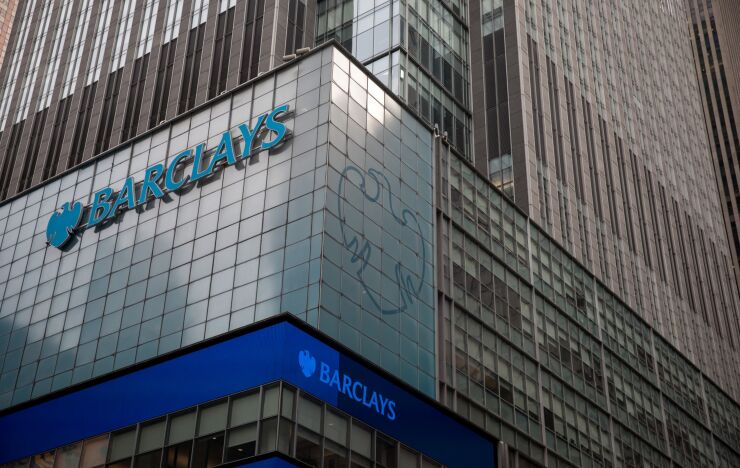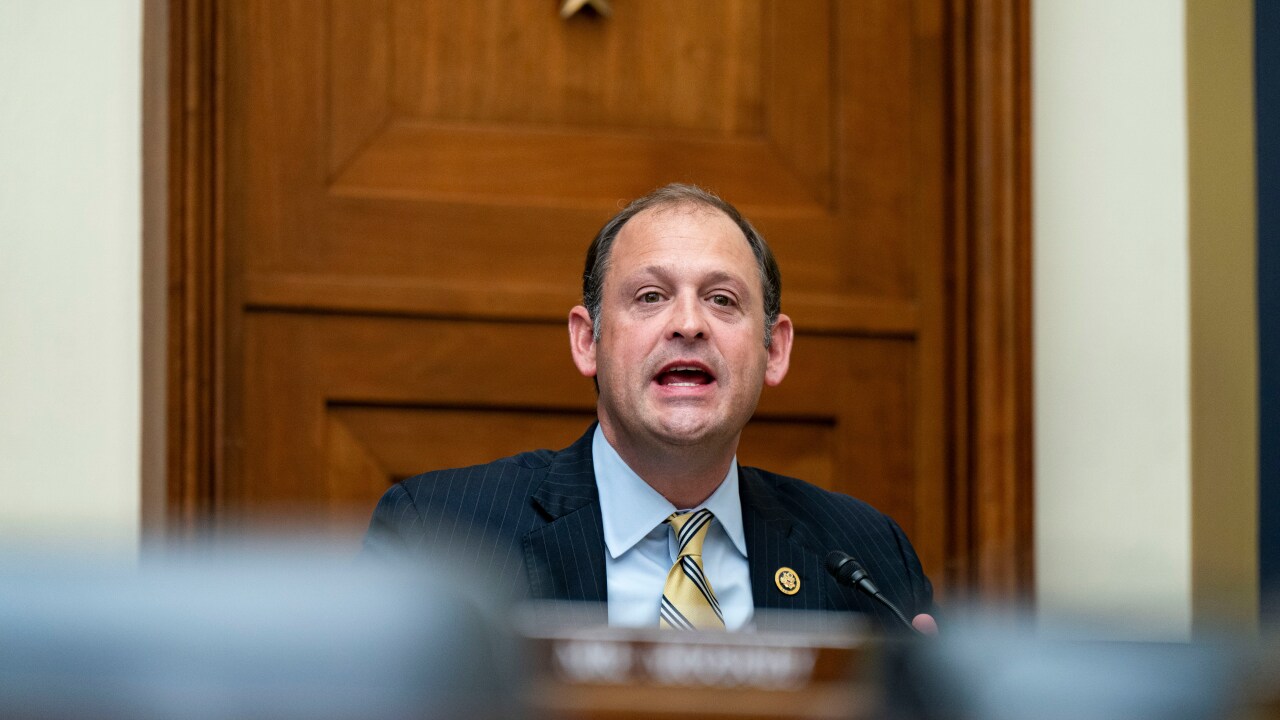The state of Alabama said Monday that it will go forward with a project to build two new prisons after Barclays Capital pulled out of a controversial municipal bond deal that would have financed their construction.
The $850 million public-private partnership lease-back
“We have advised our client that we are no longer participating in the transaction intended to provide financing for correctional facilities in the state of Alabama,” Barclays said in a statement emailed Monday to The Bond Buyer. “While our objective was to enable the state to improve its facilities, we recognize that this is a complex and important issue. In light of the feedback that we have heard, we will continue to review our policies.”

The state told The Bond Buyer that it would continue to move forward with the prison project.
“The state of Alabama is disappointed that Barclays Plc has elected to no longer participate as an underwriting entity in the Alabama Prison Program," ADOC said Monday. "These new facilities, which will be leased, staffed, and operated by the state, are critical to the state’s public infrastructure needs and will be transformative in addressing the Alabama Department of Corrections’ longstanding challenges."
ADOC said the state is fully committed to the project and has put in place new options to advance the transaction in a timely and efficient manner. ADOC is a department of the state and not a separate legal entity.
Barclays participation drew criticism from social justice organizations because it was
Thursday, the American Sustainable Business Council and Social Venture Circle
In a statement, ASBC, a "business organization serving the public policy interests of responsible companies," and SVC said they “refuse to perpetuate mass incarceration, systemic racism, and human rights abuses” through the planned offering through the Wisconsin Public Finance Authority.
The deal calls for the Alabama Department of Corrections to lease the prison buildings for 30 years with the state providing annual appropriations to pay off the loan. The prisons are to be owned by Government Real Estate Solutions of Alabama Holdings LLC, a wholly owned subsidiary of private prison operator CoreCivic Inc. ADOC is to be responsible for the day-to-day operations of the prisons, including security and managing the inmates and employees.
“Replacing our current infrastructure, which was never designed to accommodate inmate rehabilitation, will empower the state and the ADOC to make the important shift from warehousing individuals to rehabilitating returning citizens. This is a bed replacement program as up to 11 of our existing, failing facilities will be closed, which, along with associated staff savings, underpins affordability on the project,” ADOC said.
Alabama faces class-action lawsuits and U.S. Department of Justice finding letters for
The Southern Poverty Law Center and the Alabama Disabilities Advocacy Program filed class-action lawsuits against the state in 2014 saying the prison conditions violated the Eighth Amendment, which prohibits cruel and unusual punishment.
In early 2019, U.S. District Judge Myron H. Thompson ruled ADOC had violated the Eighth Amendment. Later that year, the Department of Justice notified the governor that its attorneys had reason to believe that Alabama’s prisons routinely violated the rights of prisoners and said the suspected violations were exacerbated by “serious deficiencies in staffing and supervision and overcrowding.”
In 2020, DOJ said there was reasonable cause to believe conditions at the state’s prisons violated the Eighth Amendment because male prisoners were subjected to excessive force by prison staff. DOJ then gave ADOC written notice of its allegations and the minimum remedial measures it said were needed to address them.
"The new facilities have been specifically designed for the state to address our urgent needs and are a key part of a comprehensive solution to concerns identified in current and pending litigation. These new, state-of-the-art facilities will provide safer, more secure correctional environments that better accommodate inmate rehabilitation, enhance medical and mental health services, and improve the quality of life for all those who live and work in them," the state said.
The ASBC and SVC Monday
"We invite them and all other financial institutions to sit down with us so we can chart a responsible and beneficial path forward for investing and rebuilding our communities, and our economy," David Levine, ASBC president and co-founder, said in a statement. “The American Sustainable Business Council and Social Venture Circle refuse to perpetuate mass incarceration, systemic racism, and human rights abuses through the offering and purchase of taxable municipal bonds.”





